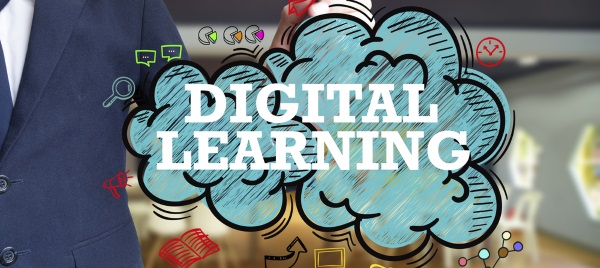Search posts by keywords:
Filter posts by author:
Related NEAT Reports
Other blog posts
posted on Aug 31, 2018 by NelsonHall Analyst

Capgemini has launched a new offering in its digital HR portfolio, Digital Learning Operations (DLO). A key feature of DLO is platform flexibility, important because next-gen platforms are better at delivering just-in-time training personalized for the learner. DLO is also important because its Digital Content Factory focuses on providing content via digital modalities, which are in high demand by organizations.
DLO is the third offering in Capgemini’s digital HR portfolio, which also includes the use of RPA (DLO currently has eight bots around learning BPaaS and vendor management). It follows Capgemini’s launch last year of Digital Employee Helpdesk (DHD) and Digital Employee Operations (DEO).
Prior to the launch of these digital HR offerings, Capgemini’s HR business was focused on providing transactional support to organizations. Its HR ambitions are focused on supporting clients in the digital transformation of their HR function and driving business outcomes beyond the efficiency play.
DLO components
The modular DLO offering has four components:
- Content design, development, and curation services via its Digital Content Factory for a variety of modalities including traditional classrooms, virtual classrooms, e-learning, web learning, blended learning, gamification, mobile learning, podcasts, videos, interactive videos, virtual reality, and augmented reality
- Learning BPaaS, including course catalog management, learner administration, learner resource management, and LMS administration
- Vendor/supply chain management, including invoice processing and payments
- Learning platforms including Microsoft’s LMS365, SumTotal’s SME and Enterprise systems, and Skillsoft’s Percipio.
Expanding on the last point, offering a variety of next-gen learning platforms is a key feature of DLO, enabling it to meet different types of organizational requirements:
- Microsoft LMS365 is aimed at organizations seeking a quick solution (implementation averages four weeks)
- SumTotal SME is targeted at companies with 0.5k to 3k employees seeking a scalable out-of-the-box LMS with pre-configured workflows
- SumTotal Enterprise is targeted at organizations with > 1.5k employees seeking a modular product, which can be customized to deliver training to the extended enterprise, including contingent workers (modules include learning, talent management, and HR)
- Skillsoft Percipio is for organizations seeking cognitive content curation, multi-device support, and personalized support by bringing more control over the content and user experience across multiple modalities.
Next-gen learning platforms are becoming increasingly important as organizations migrate to cloud-based HCM systems and realize a specialized learning platform is needed to supplement the HCM to deliver personalized and just-in-time training to the workforce (the concept of just-in-time training goes back to the early 2000s, and since then it has evolved from delivering training at the point of need to include the most effective delivery method for the individual learner).
The learning modules in HCM platforms provide the basics of an LMS. But next-gen learning platforms are dynamic and intelligent, making them suitable and ideal for the multi-generational workforce.
DLO clients, benefits & demand
Capgemini already has four large enterprise clients for DLO, including:
- An aeronautical and space manufacturer that has a presence across the U.S., Europe and Asia, looking to migrate from a 90% classroom-based training environment to a ~50% digital learning environment over the next three years
- A North American retailer seeking to transform delivery of learning content to employees and vendors while controlling costs and increasing transparency and compliance for reporting. Capgemini implemented a cloud-based LMS in three weeks and in 22 weeks developed 36 hours of web-based content including interactive content and games. This has resulted in $2m in cost savings to date and a 40% reduction in training duration.
Benefits of DLO to early adopter clients include:
- 25% - 40% reduction in total cost of service
- 20% - 45% reduction in vendor spend
- 40% - 50% productivity savings.
Demand for DLO is strong, with bookings growth of 35% and a forecast revenue growth of ~15% over a base revenue from ad hoc learning services it has been quietly providing to some clients.
In line with NelsonHall research on buy-side requirements, which shows a clear preference for the flexibility of modularity, demand so far for DLO is following a pattern of:
- Large enterprises: content services and vendor management services
- Small and mid-sized enterprises: learning platform and content services.
Wider market perspective
While Capgemini’s offering covers multiple learning services, there is a clear emphasis with the Digital Content Factory.
Per NelsonHall’s 2018 Next Generation Learning BPS market analysis, delivery modalities continue to favor digital learning methods, and these will continue to increase in importance. Nearly 65% of buy-side organizations surveyed state that the use of digital modalities is very important, and ~80% say this will be the top priority by 2021.
So, vendors with content capability skewed in favor of delivering digital training (including interactive videos, VR, and AR) will be in high demand, making the delivery of Capgemini's DLO just-in-time.
